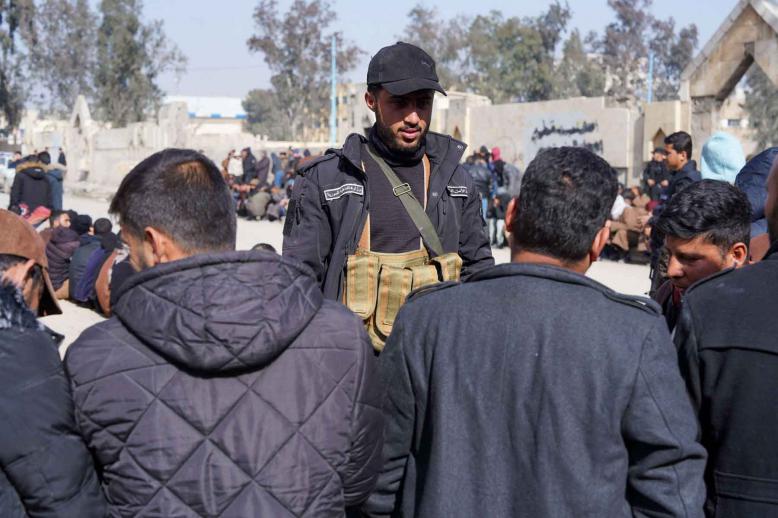
UAE rolls out remote learning system
ABU DHABI - The UAE Ministry of Education began Sunday the application of a remote learning system targeting all students of state schools and higher education institutions.
The Ministry of Education stated that this "comes in accordance with the previous decision to extend the spring vacation, and to suspend study for 4 weeks, in which the last two weeks are devoted to continuing remote learning", after the decision to close schools in most countries of the world to protect students and teachers from the spread of the novel Coronavirus.
The official Emirates News Agency (WAM) said that the Ministry of Education had completed various experiments testing its effectiveness.
They added that "a plan has been developed by the school administrations that include preparing an interactive program between the teacher and the student for all classes and for all students."
"The Ministry also implemented specialised remote training for more than 25,000 teachers and administrators in government schools, in addition to more than 9200 teachers and principals from private schools, and during the approved training week, it focused on achieving virtual learning communities that enhance the teacher's abilities to manage the educational process."
As a precautionary measure, Arab and Western countries suspended schools for several weeks due to the pandemic and some Arab countries announced their intention to develop alternative plans for remote education, including Egypt and Tunisia.
UNESCO estimates that there are 291 million students affected by global school closures.
China, where the virus originated, is studying the possibility of reopening schools and universities since infection rates have come down to almost zero since their closure.
WAM quoted the UAE Minister of Education Hussein bin Ibrahim Al Hammadi as saying that the new education journey in the country is based on technology and smart learning, using unique methods in which roles, responsibilities and tasks are similar, while keeping pace with modernity and harnessing technological academic resources.
He pointed out that "the remote learning system is the fruit and outcome of years of work, to achieve qualitative leaps in the educational system under the guidance of good leadership, in which the foundations, mechanisms and standards of the educational process have been established, and have been strengthened thanks to an educational vision that seeks to be the Emirati school in the forefront, with its learning environments varied, distinctive and effective, and modern practices that serve the elements of the educational process and provide our students with a fertile environment to continue lifelong learning. "
"Everyone looks at you as actors in shaping the present and future of the country, so let us complete the education to build the future," Noura Al Kaabi, President of Zayed University, said in a message to university students on the first day of applying remote education.

Proactive measures
Like all countries of the world, the UAE has taken additional measures to limit the spread of the coronavirus and announced on Saturday "a temporary closure of beaches, parks, swimming pools, cinemas and sports training halls."
The Emirates National Authority for Emergency, Crisis and Disaster Management said on Twitter that it had decided "a temporary closure of beaches, gardens, swimming pools, cinemas and sports training halls (...) for a period of two weeks, subject to review and evaluation."
The Crisis Department also decided to "legalise the work of restaurants and cafes and the outlets for providing food and drinking services for the same period" provided that they be "subject to review and evaluation", which is not to close them completely as was decided in other countries, including neighbouring Kuwait.
The government department stated that cafes and restaurants can "meet the requests for home delivery and host their customers at 20 percent of their capacity, taking into account social separation, which are no less than two meters provided that sterilisation procedures are applied."
The UAE authorities have recorded 153 cases of the virus in the past weeks, including two deaths and 38 recoveries, according to the Ministry of Health on Friday evening.
The authorities have taken proactive precautions, including stopping trips to dozens of cities, for fear of spreading the virus that has killed thousands around the world.
It also decided to suspend the issuance of visas upon arrival and to stop entry of residence holders, but it did not amount to forcing residents to stay in their homes.
The crisis management said it was "urging the public to play sports outdoors."
Besides the UAE, other Gulf states have tightened their measures to combat the spread of the virus, which has recorded more than 1,200 infections in the six Gulf Cooperation Council countries, mostly in Qatar, where 481 cases have been recorded.
Kuwait imposed a "partial curfew in all parts of the country from 5 pm to 4 am" starting Sunday, and the extension of the suspension in government and private agencies for an additional two weeks until April 12.






